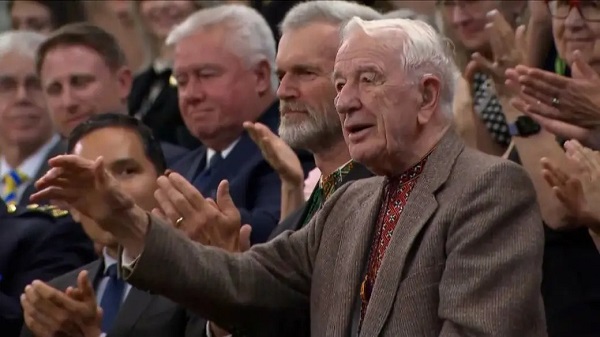Stricter rules for House of Commons guests to avoid further embarrassment
OTTAWA – The Speaker of the House of Commons, Greg Fergus, is implementing the guidelines for the “evaluation” of possible guests at the House of Commons: a measure that will be taken to avoid further embarrassment after, in recent months, parliamentarians made a standing ovation for the Ukrainian “veteran” Yaroslav Hunka, only discovering later that in his youth he had fought for a division of the Nazi “SS”.
The occasion was the presence of Ukrainian President Volodymyr Zelenskyy at the House of Commons and the Speaker at the time, Anthony Rota, had presented Hunka as a hero, unaware of his past. Once the truth emerged, Rota was forced to resign, even though the responsibility was not entirely his, but of his offices which had not carried out the necessary checks and of the Prime Minister’s office: but Justin Trudeau, unlike Rota, was limited to apologizing to Parliament, remaining rooted to his seat, while the Conservatives had argued that the blame should be attributed exclusively to the Prime Minister’s office, stating that the government has the responsibility to control the participants in such an event high profile, for security reasons.
Now, to remove any doubt, the House of Commons is taking action: the current Speaker, Fergus, who took the place of Rota, is working – as we were saying – on new, more rigid rules to evaluate possible guests of the House. A draft guideline has already been distributed to all House leaders and other parliament officials, said Mathieu Gravel, Fergus’ spokesman. “Feedback will be incorporated before the President shares these guidelines with Members of Parliament” he said. House leaders provided no details on the draft guidelines, and Gravel said he could say nothing more at this time.
The attempt is, however, to prevent a repeat of a case like that of Hunka, which ended up in the pages of newspapers all over the world, resulting in an international fool for Canada.
In the pic above, Yarosalv Hunka during the ovation given to him by the House of Commons: only later it was discovered that he had served in the Nazi “SS” (photo from social networks)



